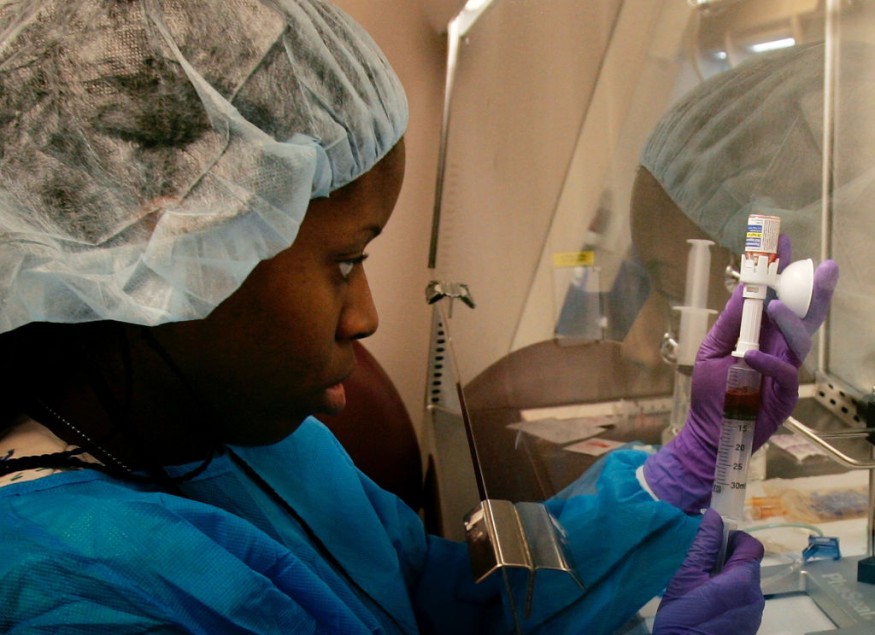As detailed in a National Cancer Institute report, a strain of the gene identified as CTLA-4 is linked to autoimmune disease. It was discovered to be more frequent in non-small cell lung cancer or NSCLC patients who encountered an exceptionally high response to anti-PD-1 immunotherapy and higher immune-associated side effects compared to a comparable group of lung cancer patients and healthy individuals. This was presented during the AACR Annual Meeting 2022, held from April 8 to 13.
According to a EurekAlert! report, inhibitors of the immune checkpoint proteins called PD-1/PD-L1 have transformed the cancer treatment landscape.
Nevertheless, there is still large variability in response and unpredictable negative occurrences, including autoimmune reactions, in NSCLC patients who receive the treatment, according to presenter India Allen, BSc, from the Garvan Institue of Medical Research, St. Vincent's Medical School, UNSW, Australia.
The presenter added that there are presently limited biomarkers to shield such variability effectively, and the degree to which the patient's genetic makeup contributes to response is not clearly understood.

Link to Autoimmune Response
The immune-related adverse events or irAEs, the side effects arising in response to stimulation of the immune system by immunotherapy, are known to correlate with higher reaction to anti-PD-1 treatment and improved results in NSLC patients, a similar Mirage News report specified.
Lung cancer patients with genetic variant linked to autoimmune disease may respond better to immunotherapyhttps://t.co/2ygZrO8mDm
— Mirage News (@MirageNewsCom) April 10, 2022
Additionally, Allen explained that combined blockade of PD-1 and second immune checkpoint protein, like CDLA-4, frequently results in better treatment outcomes but at the cost of increased irAEs, including autoimmunity.
This proposes a shared mechanism behind the predisposition, driving autoimmunity and better reaction to cancer immunotherapy. The researchers hypothesized that patients who show increased response may be harboring genetic mutations within the gene CTLA-4 linked to autoimmune and that these might work to drive better results.
To test such a hypothesis, the authors of this study carried out whole genome sequencing on germline DNA from more than 30 NSCLC patients showing exceptional response to anti-PD-1 therapy, identified as progression-free survival of at least two years and one or more irAEs of grade 2 or higher.
In these patients, a certain single nucleotide polymorphisms or SNPs' frequency in the genetic relation that encompassing the CTLA-4 gene was examined and compared to that in patients who have lung cancer within the publicly Available Pan-Cancer Analysis of Whole Genomes (PCAWG) cohort and to cancer- and dementia-free older adults included in the MGRB or Medical Genome Reference Bank.
Study Finding
Together with her colleagues, Allen was able to identify several SNPs that were more often among the outstanding responders compared with the other two groups.
Specifically, one SNP was present in 15.7 percent of outstanding exceptional responders and was twice more often than in patients within the PCAWG cohort and nearly four times more frequent than those in the MGRB cohort.
Allen commented that SNP had been reported to affect the function of CTLA-4 immune checkpoint protein to drive increased vulnerability to autoimmune diseases like type 1 diabetes and rheumatoid arthritis.
This variant's enrichment in the said cohorts suggests a mechanism by which it could confer increased reaction to the treatment. This CTLA-4 variant could be used to determine patients that would benefit from anti-PD-1 treatment.
Related information about lung cancer and immunotherapy is shown on Big Ten Cancer Research Consortium's YouTube video below:
RELATED ARTICLE : Artificial Sweeteners Found in Diet Sodas, Yogurt, and Cheese May Increase Cancer Risk by 13 Percent, Large-Scale Research Reveals
Check out more news and information on Cancer in Science Times.
© 2026 ScienceTimes.com All rights reserved. Do not reproduce without permission. The window to the world of Science Times.












